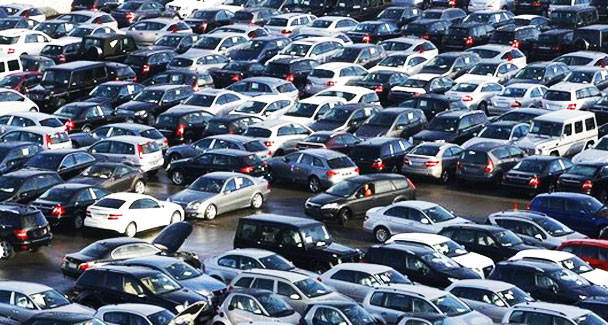The import bills for vehicles and spare parts in Pakistan have surged significantly, with stakeholders divided over the reasons behind this development. While some attribute the increase to the thriving import of used cars, others point to the rising arrival of new vehicles, including electric vehicles (EVs), hybrids, and plug-in hybrids.
Data from the Pakistan Bureau of Statistics (PBS) shows that imports of completely built-up (CBU) cars increased to $124 million in the first half of FY25 (IHFY25), compared to $108 million during the same period last fiscal year. The influx of expensive new and used hybrid vehicles, along with EVs imported by assemblers to gauge market response, has contributed to the surge.
The import of completely knocked-down (CKD) and semi-knocked-down (SKD) parts for vehicle assembly also rose to $402 million in IHFY25 from $379 million a year earlier. This indicates robust sales activity over the past six months and anticipates continued demand into the first half of 2025.
Industry experts cite several factors driving the demand for vehicles, including a relatively low interest rate of 13%, promotional auto financing offers, and declining inflation. Additionally, a significant increase in remittances, often funnelled into the real estate sector, has indirectly fuelled the car market.
Despite the surge, auto parts maker and exporter Mashhood Ali Khan expressed dissatisfaction with the growth figures for locally made cars, LCVs, pickups, and vans. He noted that, despite the presence of 10 assemblers post-COVID, the industry is struggling to surpass the pre-pandemic benchmark of 250,000 units annually, achieved when only three assemblers were operational.
Mashhood further criticised the low localisation in spare parts manufacturing, stating that new entrants under the current auto policy are allowed to begin assembly with minimal reliance on locally produced components. This has left vendors reliant on orders from long-established assemblers.
The import of heavy vehicles also showed a notable increase, with CKD/SKD kit imports for buses, trucks, and other heavy vehicles rising to $156 million in IHFY25 from $83 million in the previous fiscal year. Imports of heavy vehicles themselves grew to $48 million from $34 million during the same period.
The Sindh government has played a pivotal role in the surge, particularly with its plans to add 8,000 electric buses to the Peoples Bus Service in phases, further boosting the demand for heavy vehicles.




